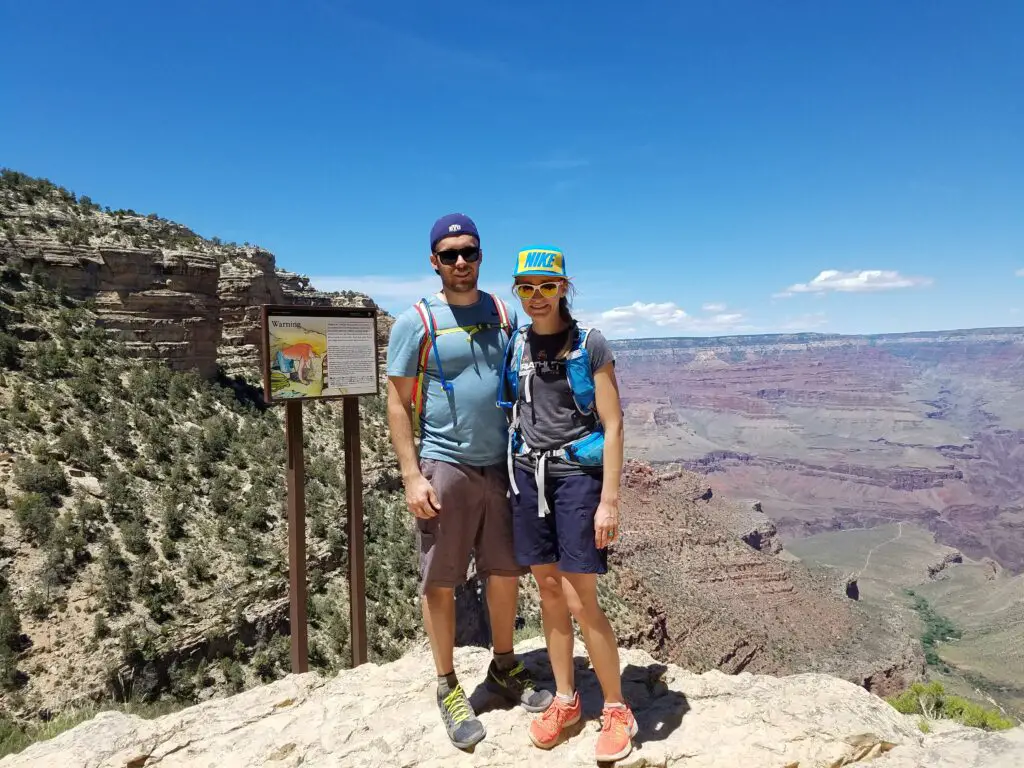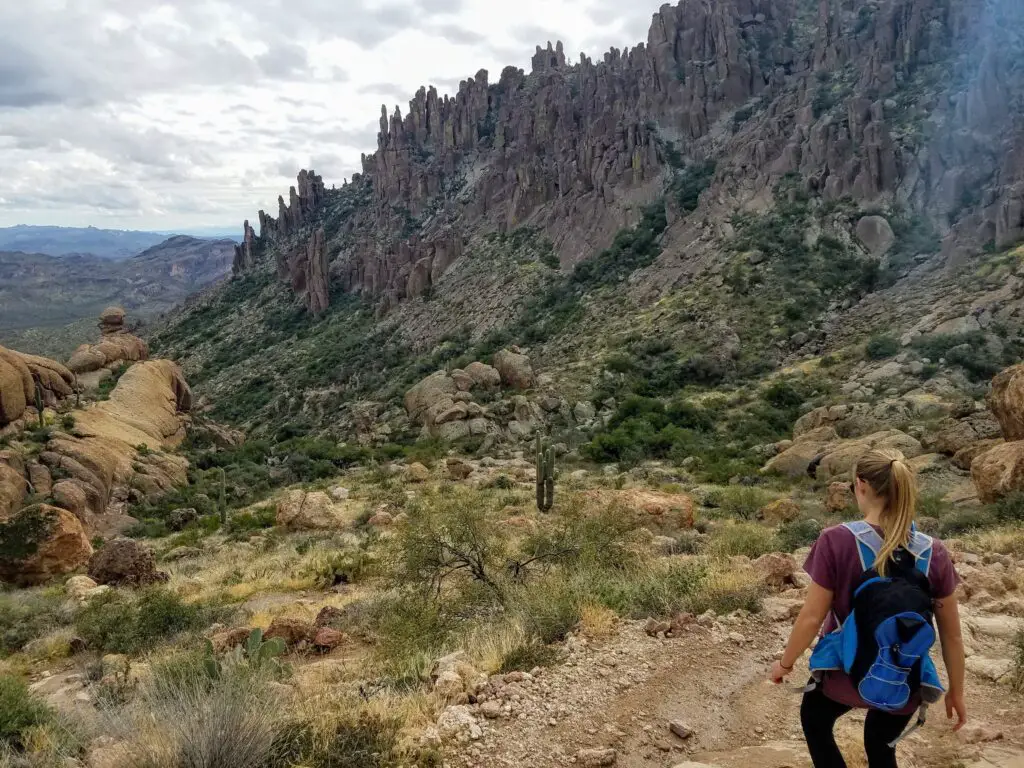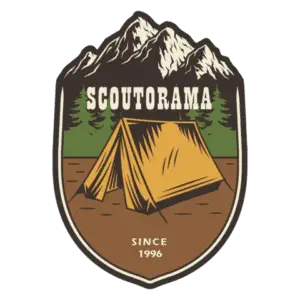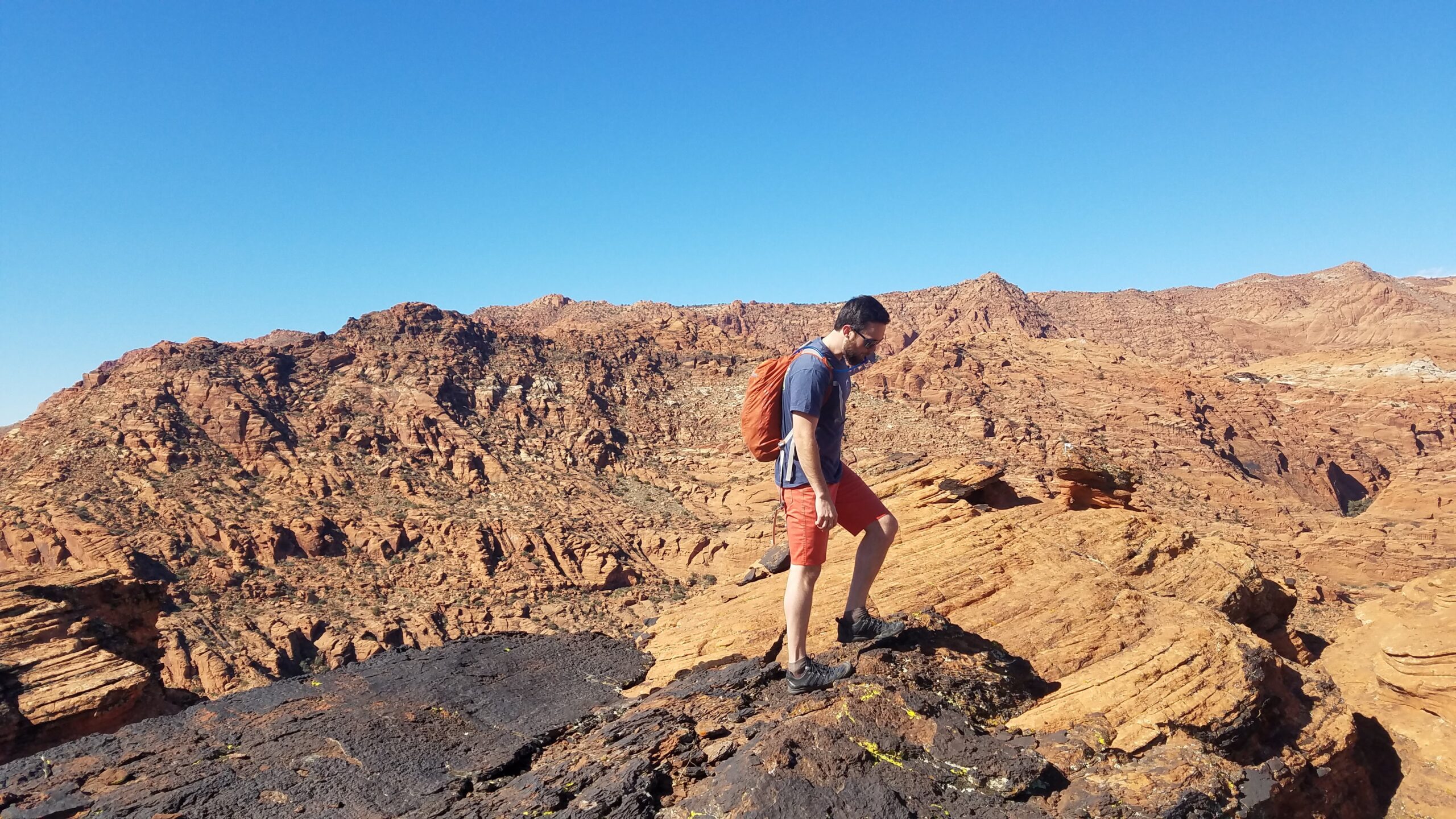Sometimes after a hike or other physical activity I’m surprised to find that I have little or no appetite. It might seem strange that after burning through a bunch of energy during a hike, you don’t feel hungry.
In fact, sometimes even the thought of eating makes people feel nauseous. This is a phenomenon that a lot of people experience, and there is actually a scientific reason that you feel that way!
There are three main reasons why you may not be hungry after a hike. They include:
- Hunger Hormones can affected by exercise, especially irregular exercise like hiking
- During exercise like a hike, your body sends oxygen and blood to your muscles instead of your stomach for digesting food, which can make you feel less hungry
- Changes in body temperature can affect how hungry you feel as well
During exercise, it is normal for your hunger hormones to get a little bit out of whack. Regardless of all this craziness that happens with your body, eating after a hike is still very important to give your body the nutrients it needs to recover.
Read on for more information about why you aren’t hungry after exercise and what you should eat after a hike if you aren’t feeling hungry, according to a dietitian.
Why am I Not Hungry After Hiking?
You might find that different types of exercise leave you feeling more or less hungry afterwards. While a stroll around the block might not blunt your hunger signals very much, a long and intensive hike might be a different story.
Your body is working at a different level during exercise than it is when you are just going about your normal daily tasks. Since you expect it to work harder and adapt to challenging circumstances that come up when hiking, it is no surprise that it does have to make some adaptations.
While you normally have blood flow and oxygen helping your gut digest food and keep things regulated, during exercise your muscles need more of that blood and oxygen to keep them going. Ghrelin, your main hunger hormone, might also get a little bit out of whack when your body is exercising which can change your normal feelings of hunger.
On top of all of that, you are having to regulate changes in body temperature as your internal engine gets going. Your electrolyte levels start shifting, especially if you are hiking in a hot environment, so your thirst drive might be overpowering everything else. Sometimes being fatigued makes eating feel like a burden too. There is just lots of stuff going on!
This is not your body telling you that you don’t need to eat- think of it more as your hunger signals are just being temporarily blocked because there are more important things going on at the moment. These hunger signals are still there, they’re just harder to recognize.
Should I Still Eat After a Hike Even if I’m Not Hungry?
Post-exercise is actually one of the most important times to eat, even if you don’t really feel like it. Not only have you put extra stress on your body that it needs to recover from, but you are also likely in an energy deficit.
When your body doesn’t have the nutrients and calories that it needs, when it needs them, it has to compensate somehow. That can sometimes mean breaking down muscle, or decreasing your energy levels to make you slow down and rest, etc.
While it is great that our bodies are smart enough to compensate when they don’t get everything they need, it is never a good idea to keep our bodies in compensation mode for long periods of time.
For example, a couple of years ago my husband and I hiked the Grand Canyon Rim-Rim in a day. With the heat and the intensity of the hike, neither of us ever felt hungry during the hike. Had we not eaten anything during the 8 hours though, we probably would have collapsed somewhere on the trail and had to be flown out.
We made sure to eat something- a granola bar or trail mix or energy gel- anytime we stopped for a rest and interspersed throughout the hike. Putting our bodies through something like the Rim-Rim hike threw them out of whack and made it so we didn’t notice regular hunger queues.

What about Hiking for Weight Loss?
If you are hiking for weight loss, you might think this doesn’t apply to you because you want to be in a calorie deficit. It is a common fear that people have to not want to “eat back” all the calories that they just burned. This is a very restrictive mindset to have food- which your body doesn’t normally respond very well to.
Have you ever experienced a time where you didn’t eat enough food earlier in the day and you hit that point where you are absolutely RAVENOUS? At that point, mindfulness and healthy choices often go out the window as your brain and body take over and get the food that they have been so desperately needing. For those that have a desire to lose weight, you have probably experienced this before if you don’t feed your body enough calories!
No matter what your personal goals are- weight loss, building muscle, getting in shape, or just becoming healthier overall- I suggest a focus on nourishing your body AKA giving it what it needs, when it needs it. If you do this, you will not only have a much better relationship with food and your body, but you might be surprised how much faster you achieve your personal goals!
I’ve written a full article about Hiking for Weight Loss that answers all of the questions you may have if this is your intent. Read it here- Hiking to Lose Weight- a Dietitian’s Advice.
What Should I Eat After a Hike?
It can be challenging to eat when you don’t feel hungry, so I always encourage people to do the best that they can. There is not necessarily a perfect way to fuel your body; however, there are some basic nutrition principles that you can do your best to follow. I’ll share some tips and tricks to managing a weak stomach or lack of hunger after exercise below.
After a hike in which you’ve strained your body and muscles due to the speed, distance, or elevation changes, it’s really important to consume some protein. Protein is what your body uses to help repair the muscles that were torn up during the exercise.
Many traditional hiking snacks like GORP, protein bars, or beef jerky include lots of protein, and can be good options for refueling the tank before mealtime. Of course, this is also a great opportunity to fit in fresh or dried fruits and vegetables.
Important Nutrients After Hiking
I remind people to focus on their macronutrients after hiking by including a good source of carbohydrates and protein. Carbohydrates are important for replenishing all of the energy stores that you just wiped out during hiking, and protein is going to be helpful for muscle recovery. Fat tends to come along for the ride when you focus on the other macronutrients, but feel free to include some healthy fat sources after a hike too!
Tips for Eating When You Don’t Feel Hungry
Not feeling hungry after a hike? Or even worse, feeling a little bit nauseous? It’s definitely normal to feel this way, but there are a few tips to make eating a little bit easier.
- Start with liquid nutrition. Liquids tend to be a little bit easier on the stomach and even help to stimulate your appetite a little bit. Some good options are protein shakes, smoothies, chocolate milk, 100% juice, and occasionally sports drinks
 .
.
- Eat what sounds good! Sometimes all you need is a little bit of food in your system before you start to realize how hungry you actually are.
- Don’t force yourself to eat a ton all at once. Just start with a small amount to stimulate your appetite and then give your body some time to cool down and adjust to being done with exercise.

How Soon After Hiking Should I Eat?
The sooner you can eat after a hike, the better, but I typically recommend eating within an hour or two of exercise. Eating a full meal is usually going to be balanced and provide the nutrients that your body needs to recover, but of course sometimes it isn’t possible to consume a full meal within 1-2 hours of a hike.
If that is the case, try a snack to give you a little bit of fuel and hold you over until you can get to a full meal. It is especially important to stay hydrated throughout the hike, and to get some source of protein within 45 minutes of finishing.
Summary
If you don’t feel hungry after exercise, that is totally normal- but it isn’t an excuse to not eat! When you focus on fueling and nourishing your body, you will feel better, have more energy, decrease your risk of injury, recover better, and more. All it takes is being able to listen to your body but also know when your body’s cues might be a little bit off and understanding what to do.
Related Questions
Why Am I Not Hungry After a Long Hike? After a long hike you may not feel regular hunger queues because exercise can affect hunger hormones by suppressing your appetite. Additionally, your body sends blood to your muscles instead of your stomach while you’re hiking. The fluctuations of body temperature during outdoor exercise can also affect hunger queues.
What is Post-Hiking Fatigue? Hikers refer to post-hiking fatigue as the feeling of complete exhaustion and low energy the day after a strenuous hike. It is also often referred to as a post-hike ‘crash.’ Post-Hiking Fatigue is caused by muscular exhaustion and exacerbated by pushing your body too hard and failing to refuel adequately both during and after a hike.

